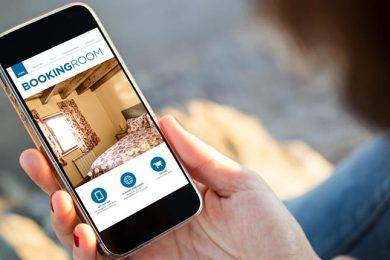Since the passing of the Americans with Disabilities Act in 1990, there has been a huge drive amongst hoteliers to make their businesses more inclusive and accessible to disabled guests. However, despite the ADA being passed more than 30 years ago, there is still a long way to go before many hotels could be considered accessible. Here are some of the key areas that need to be addressed for many hotels.
Elevators
Elevators have been a part of hotel design since the introduction of the safety elevator by Elisha Otis in the late Victorian period. They are especially important for guests who use wheelchairs, who cannot travel up stairs without help.
A well-maintained elevator system is essential if a hotel is to be considered even remotely accessible. Companies such as ATIS elevator inspections offer their services to hotels all around the United States. Elevator systems are not limited to the standard cable hoisted design that conveys people between floors. Accessibility elevators on a smaller scale can allow people to reach levels within floors – like mezzanines.
Accessible Booking Forms
Many people with disabilities encounter one problem when trying to book a hotel room is being unable to specifically make a booking for a room that fits their needs. Hoteliers need to make their booking systems more accessible by allowing people to see the facilities in each room, whether it is accessible on level ground, whether it contains hearing aid loops and whether it contains an accessible toilet. These things are all essential but rarely visible on hotel booking sites.
Transparent Information Online
Hoteliers should not claim that their establishments are accessible when they are not. Transparency online helps to prevent customers with disabilities from being disappointed when they arrive and find their room hard to access. Often, a hotel website will claim that a business is accessible despite the owners having never consulted any disability groups. If a hotel cannot afford to hire a disability consultant, it must not make trumped-up claims of accessibility. Clear and simple statements that display accessible features are much more useful to a prospective customer than wordy advertising copy.
Hearing Aid Loops
For hard-of-hearing people, background noise can make understanding receptionists and fellow guests at a hotel extremely hard. Hearing aid loop systems cut out background noise and make comprehension far easier. Hearing loops are magnetic antennae that are laid around a room, transmitting amplified speech directly to a receiver in a person’s hearing aid. Hotels should install hearing aid loops and prominently display signage indicating that loops are active so that hard of hearing people can switch their hearing aids to a setting that allows for the picking up of loop signals.
Increase Staff Training
Staff training is the most important thing a hotel can implement to make the stays of disabled customers more pleasant. Staff needs to be trained in best practices for helping disabled people navigate the premises independently. Research has suggested that any framework for a truly inclusive hotel should put training first and foremost.
Peter Sundin was born and raised in New Jersey. He has contributed to Buzz Feed, Details and TODAY and served as a commentator for NPR, MSNBC and HuffPost Live. As a journalist for Morning News Ledger, Peter mostly covers national news. Aside from earning a living as a freelance journalist, Peter also works as a dog walker.











